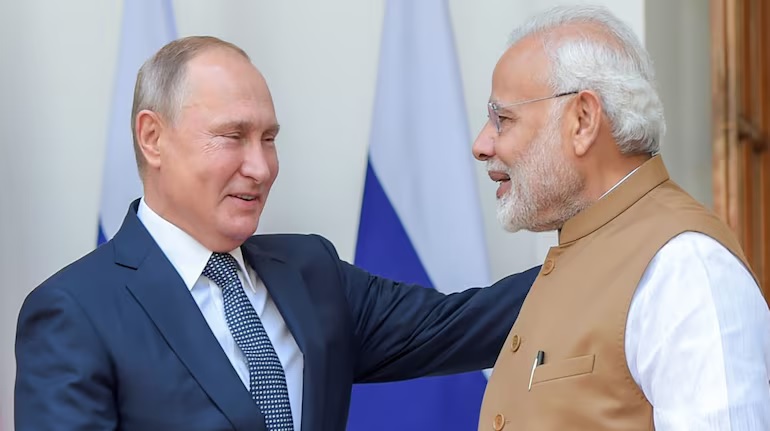India Becomes Russia's Second Largest Supplier of Restricted Technology Amidst Rising Concerns from the West

India has swiftly emerged as the second-largest supplier of restricted technology to Russia, creating a new challenge for the United States and its European allies. According to officials from the U.S. and Europe, India's exports of critical, dual-use items—such as microchips, circuits, and machine tools—have surged in recent months. These restricted technologies, which are often needed for military applications, are now flowing to Russia in significant quantities, despite global efforts to curb such exports.
In April and May, India’s shipments of restricted goods to Russia surpassed $60 million each month—double the figures from earlier in the year. By July, the total had skyrocketed to $95 million, signaling a worrying trend for Ukraine’s allies. With China remaining the top supplier, India has now taken second place in providing restricted technology to Russia.
The sensitive nature of these exports has caught the attention of U.S. and EU officials. The goods involved—ranging from advanced microchips to machine tools—are essential for Russia's military-industrial complex, which supports its war in Ukraine. Almost 20% of the restricted technology that Russia requires for its military operations is now sourced via India, highlighting the complexity of cutting off supply routes to Moscow.
India’s increasing role has raised alarms, particularly as the West has struggled to fully isolate Russia from global technology supplies. Direct exports of such dual-use items to Russia have been banned by most countries since the Ukraine invasion began in early 2022, forcing Moscow to seek alternative sources. Countries like India, China, Turkey, and the UAE have become critical transshipment hubs for these items. Officials believe that in some cases, these technologies are supplied to Russia through intermediaries or subsidiaries of Western companies that may not even be aware of their final destination.
India’s position in the global geopolitical landscape adds another layer of complexity. U.S. and European leaders are keen to maintain strong ties with Prime Minister Narendra Modi’s government, as India plays a key role in regional security and global supply chains. Yet, at the same time, India has cultivated a deepening relationship with Russia. India’s purchase of Russian oil, despite Western restrictions, has strengthened this partnership, leading to large reserves of rupees in Russian hands. This stockpile of rupees from oil sales is now being used to finance the purchase of restricted technology, making India an even more significant player in these transactions.
India’s Ministry of External Affairs has largely declined to comment on the growing concerns. However, U.S. and European officials have been increasingly vocal in raising the issue with their Indian counterparts. In July, U.S. Deputy Treasury Secretary Wally Adeyemo sent a letter to Indian industry leaders, warning that companies and banks doing business with Russia's military-industrial complex risk facing sanctions. The letter, obtained by Bloomberg News, underscored the risks for Indian firms that continue to deal with sanctioned Russian entities.
The rise of India as a key supplier of restricted technology to Russia complicates the Western strategy to stifle Moscow’s war efforts. Sanctions have been imposed on several Indian companies, and U.S. and EU officials have made several trips to New Delhi to urge action. But despite these warnings, India’s role in transshipping goods to Russia remains a growing concern.
The challenge ahead for Western policymakers is how to balance their strategic partnership with India while also pressuring the country to cut off the flow of restricted technology to Russia. With global sanctions tightening and Russia increasingly dependent on countries like India to sustain its military capacity, the situation puts the U.S. and EU in a difficult position. India's geopolitical importance, combined with its expanding trade relationship with Russia, ensures that this issue will remain a major point of tension in the months to come.


